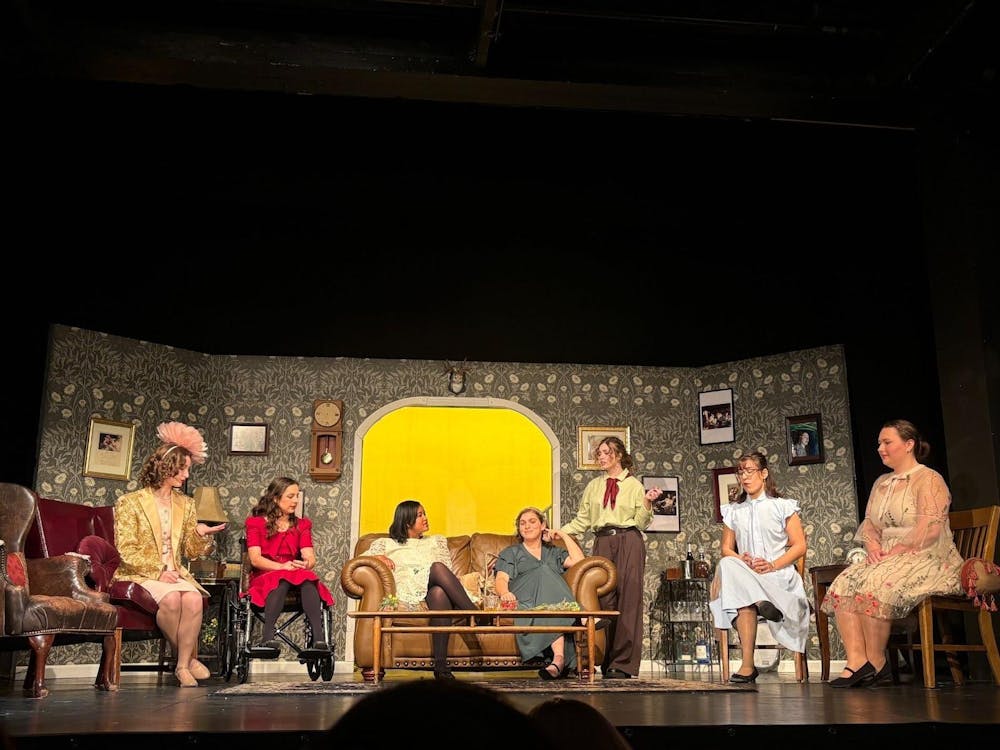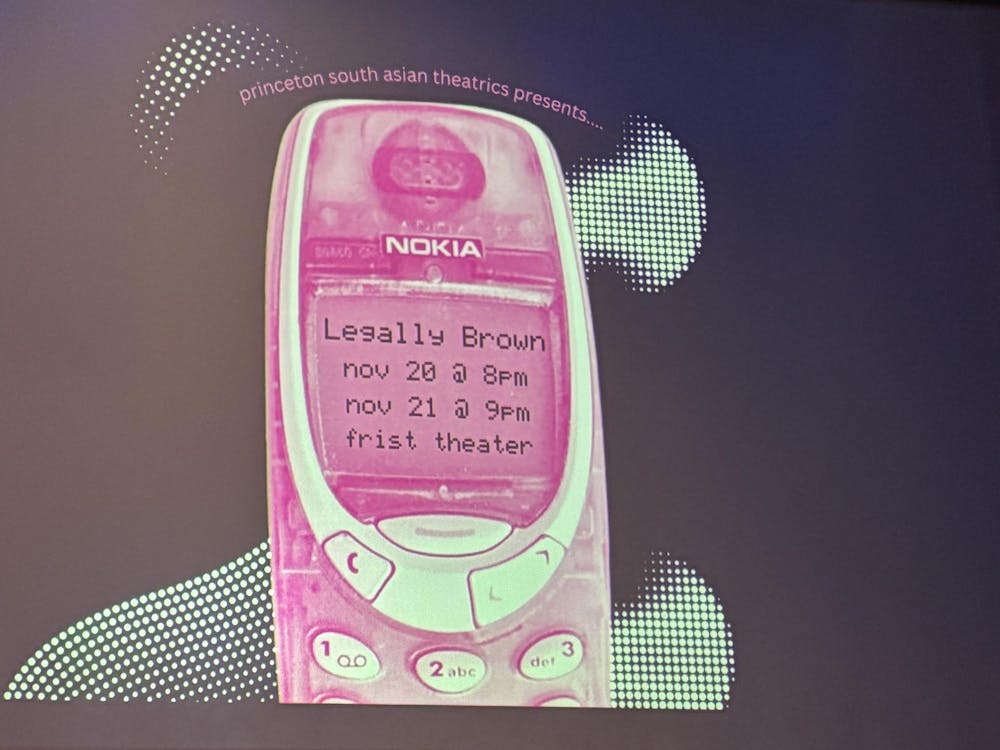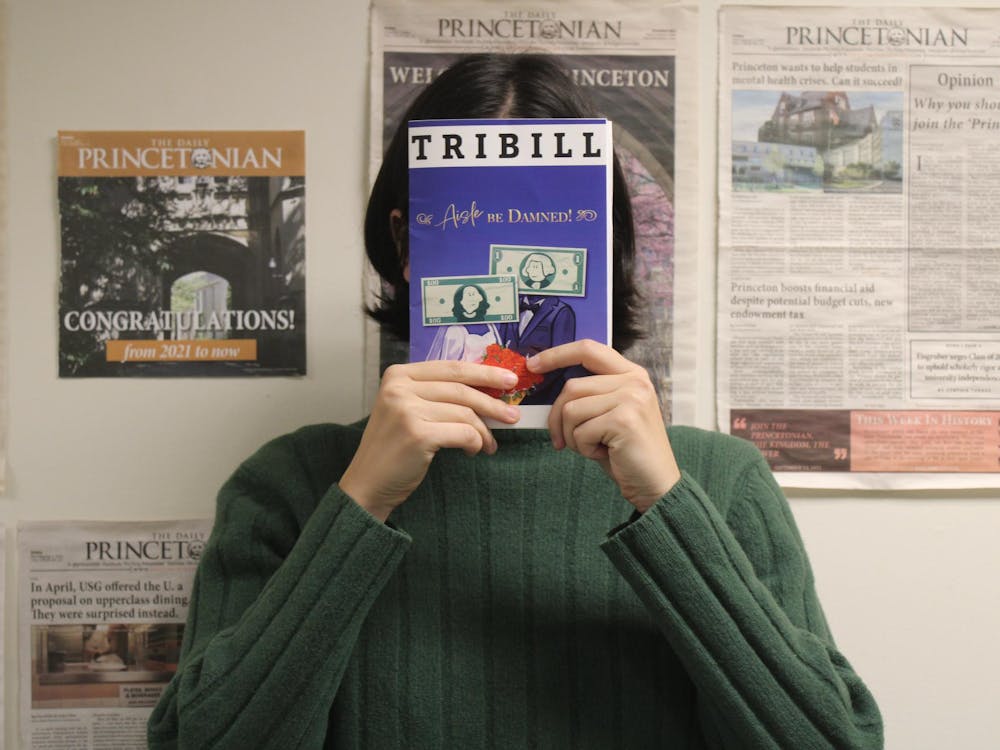Sometimes, freshmen seem a bit too keen to tackle coursework, social life and extracurriculars. Fresh off the high of getting into Princeton,they're plucky and still believe they know how to make this University better. Eventually, University life tempers their enthusiasm, but for that first year, we get to see all the refreshing optimism, the naïveté and the unabashed hope that fills all freshmen.
Thankfully, Theater Intime has taken advantage of that pluckiness in their very enjoyable production, the Freshman One-Act Festival, putting its freshmen in charge of directing, acting and producing four short plays: “The Problem” directed by Jared Hopper ’18, “Insomnia” directed by Abigail Jean-Baptiste ’18, “Enigma Variations” directed by Carolyn Beard ’18 and “The Sandbox” directed by Kyle Berlin ’18.
“Is all this actually nothing with something behind it, or is it something with nothing behind it?” one character in “Enigma Variations” asks. As far as the play goes, the answer seems to be the latter —a carefully-executed production with little deeper meaning.
The play is built on irrational statements and contradictions, but Beard doesn’t seem to try too hard to make sense of it, instead focusing on the finer details — a smart choice, as cues, motions and dialogue are well-executed, with the doppelgängers moving and speaking in perfect coordination. But like that one kid in your precept who simply opens his mouth and starts speaking, the play seems to be going nowhere thematically.
“The Sandbox” is another seemingly meaningless story of a family’s trip to the beach, directed by Kyle Berlin ’18. Though the play itself is intended as a commentary against artificiality, the avoidance of deeper exploration of that theme in favor of charismatic performance is acceptable here, thanks to the earnest performance of Miranda Bolef ’18 as Grandma. Bolef is simultaneously charismatic and committed, elevating the unconvincingly cartoonish performances of her co-stars.
Freshman naïveté proves an asset in “The Problem,” whichstars Nico Krell ’18 and Hope Kean ’18,which explores themes of class, race and married life. The dialogue runs long and the ending is too brief to fully understand what kind of message Hopper wants to send about the colorlessness of upper-class culture the couple represents, but Krell and Kean approach their roles with an ease and comfort — and the occasional smirk — that belies their ages, with dialogue featuring just enough puns and references to keep the mood light-hearted.
“Insomnia,” starring Alex Vogelsang ’18 and Meagan Raker ’18, features the projection of a mother’s rage onto her daughter, who quite simply won’t let her sleep. The daughter proceeds to transform into a grocery list, a husband, a boss, a mother and a torturer, all agents of stress in the mother’s life. Its tale of sleep deprivation, unsurprisingly, is the most relatable. “Insomnia” comes the closest to thematic meaning with Vogelgang’s rants about all her stresses. Though it seems the least vapid of the four plays, it is only by default — sleep deprivation is something everyone at Princeton can easily understand.
Innocent ambition, as brief as it lasts, can still be a beautiful thing. Though each play seemed to shy away from attempts at deeper meanings or themes, the twenty minutes and brief one-act plays seemed to discourage this in the first place, instead allowing freshman directors and actors to work on the mechanics of putting on a play: the subtle cues and deliberate motions that make up acting.

Besides, these freshmen have plenty of time to explore duality, death, married life and sleep deprivation — for now, they can just enjoy being on stage.
3 out of 5 paws
Pros: Impressive performances and dedicated direction.

Cons: Confusing plot in all four plays.







